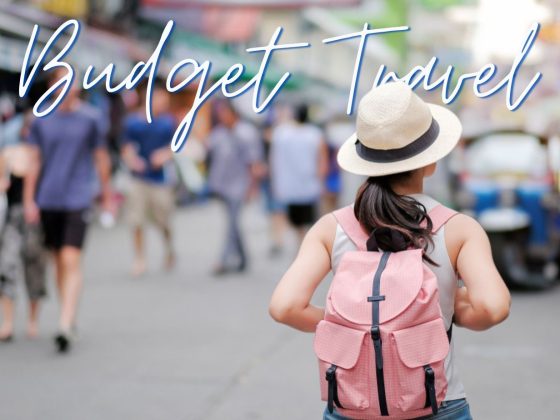Travel is an exhilarating experience that promises adventure, self-discovery, and a chance to explore new horizons. Whether you’re an avid globetrotter or setting out on your first big adventure, the prospect of discovering uncharted territories is always invigorating. In this comprehensive guide, we’ll navigate the complex world of travel, providing you with valuable insights to ensure your journey is smooth, memorable, and filled with happy travels.
Valuable Tips for Your Journey That You Should Learn First
1. Choosing the Destination
Exploring Unique Places
When planning your journey, it’s tempting to gravitate towards well-trodden tourist destinations. However, real adventure often begins where the crowds thin. Seek out unique places that offer authenticity and distinct experiences. Explore the lesser-known corners of your chosen destination to discover hidden gems, local culture, and captivating stories.
Budget Considerations
Crafting a budget is an essential aspect of travel planning. While it’s crucial to ensure your journey aligns with your financial comfort, don’t forget to factor in hidden costs. These can include local taxes, fees, and gratuities that can add up. Creating a detailed budget will keep your expenses in check and prevent unexpected financial surprises during your travels.
Climate and Seasonal Factors
The climate and season at your destination play a pivotal role in the success of your trip. Research the weather patterns for your intended travel dates and pack accordingly. A lightweight wardrobe won’t suffice for a winter visit to a mountainous region, just as heavy winter coats are unnecessary in tropical climates. Dressing appropriately ensures you’re comfortable and ready for all the experiences your destination offers.
2. Travel Planning
Itinerary Creation
Crafting the perfect travel schedule is an art in itself. Strike a balance between planned activities and free time for spontaneous exploration. Ensure you allocate sufficient time for rest and recovery, as overloading your schedule can lead to exhaustion and missed opportunities. Your itinerary should be a flexible guide, not a rigid plan.
Accommodation Selection
Selecting the right accommodation sets the tone for your journey. Consider your preferences, be it a cozy boutique hotel, a charming Airbnb, or a backpacker’s hostel. Research the neighborhood, read reviews, and don’t forget to explore booking hacks that can save you money, like flexible cancellation policies or loyalty programs.
Travel Insurance
Don’t underestimate the importance of travel insurance. It’s your safety net in the event of emergencies, cancellations, or unexpected medical expenses. Evaluate different coverage options and select one that suits your travel needs. Ensure you’re adequately covered for your activities, whether it’s adventurous trekking, snorkeling, or simply sightseeing.
Visa and Documentation
Visa requirements and documentation can be a stumbling block for travelers. Research the visa requirements for your destination and start the application process well in advance. Compile a checklist of essential documents, including passports, visas, identification, and copies of important papers. Missing or incorrect documents can lead to frustrating delays and complications at border crossings.
3. Packing for Success
Packing Essentials
Efficiency is key when packing for your journey. Prioritize versatile clothing items that can be mixed and matched, saving space and reducing the need for excess baggage. Don’t forget travel-sized toiletries, a basic first aid kit, and any necessary medications. Consider the activities you plan to engage in and pack accordingly.
Luggage and Bags
Choosing the right luggage is crucial. Opt for durable, lightweight options that suit your travel style. Backpacks are excellent for versatility, while hard-shell suitcases offer protection for delicate items. Packing cubes help keep your belongings organized and reduce wrinkles, making it easier to find what you need without unpacking your entire bag.
Electronics and Gadgets
In today’s digital age, tech gear is essential for travelers. Ensure your devices are charged and carry portable chargers or power banks for emergencies. Invest in travel adapters to plug your devices into foreign outlets. Consider packing noise-canceling headphones for flights and crowded environments, and back up your photos and important documents in the cloud for added security.
4. Navigating the Journey
Airport Tips
Navigating airports can be a hassle, but a little preparation can make the experience smoother. Arrive with ample time before your flight to account for security checks and potential delays. Download airline apps for digital boarding passes and keep your ID and boarding passes accessible. Utilize trusted travel apps for real-time flight updates and gate information.
In-Flight Comfort
Long flights can take a toll on your body, so ensure you stay comfortable during your journey. Pack essentials such as a neck pillow, eye mask, and noise-canceling headphones for restful sleep. Stay hydrated, avoid excessive alcohol, and stretch your legs regularly to prevent the dreaded jet lag.
Ground Transportation
Once you’ve arrived at your destination, you’ll need to navigate ground transportation. Research the options available, whether it’s public transport, taxis, ride-sharing services, or renting a car. Each mode has its pros and cons, so choose what aligns with your budget and preferences. Familiarize yourself with local transportation apps and maps to ease navigation in unfamiliar cities.
5. Staying Safe and Healthy
Travel Health
Health precautions should be a top priority. Check if vaccinations or specific health precautions are necessary for your destination. Carry a basic first aid kit and any necessary medications, along with a copy of your medical history in case of emergencies. Research local healthcare facilities and pharmacies in advance.
Safety Abroad
Protecting your belongings is essential to ensure a safe and stress-free journey. Invest in anti-theft bags and carry your essentials in a money belt or hidden pouch. Be vigilant in crowded areas, watch for pickpockets, and avoid displaying valuable items like expensive jewelry. Staying safe in unfamiliar environments means being cautious and aware of your surroundings.
6. Immersing in the Culture
Learning the Local Language
Learning a few key phrases in the local language can go a long way in enhancing your travel experience. Polite greetings, thank-yous, and common questions can help you connect with locals and navigate daily interactions. Language apps and phrasebooks are valuable tools for bridging the communication gap.
Trying Local Cuisine
Sampling local cuisine is a highlight of any journey. Step out of your culinary comfort zone and savor the flavors of your destination. Ask locals for restaurant recommendations, try street food, and explore markets. Be mindful of local dining etiquette to show respect for the culture and traditions of the region you’re visiting.
7. Capturing Memories
Photography Tips
Travel photography allows you to preserve your memories for a lifetime. Learn how to use your camera or smartphone effectively, experiment with composition, and capture the essence of the places you visit. Use your photos to tell a story, and don’t forget to interact with the locals to capture candid moments that truly reflect the spirit of your journey.
Journaling and Keepsakes
Documenting your journey through journaling is a wonderful way to remember your experiences. Take a few minutes each day to jot down your thoughts, observations, and the people you meet. Collect keepsakes such as postcards, maps, or mementos from the places you visit, creating a physical representation of your adventures.
8. Travel Etiquette
Respectful Travel
Cultural sensitivity is essential when traveling. Research the customs and traditions of your destination and be respectful of local beliefs and practices. Dress modestly where required, ask for permission before taking photos of people, and always be mindful of your impact on the local environment.
Tipping and Bargaining
Tipping and bargaining customs vary widely from place to place. In some countries, tipping is expected, while in others, it’s considered disrespectful. Understand the local norms and follow them accordingly. When bargaining, be polite, smile, and negotiate with respect. Remember that fair prices benefit both you and the local sellers.
9. Handling Unexpected Situations
Emergency Preparedness
While no one wants to dwell on emergencies, it’s essential to be prepared. Carry important contact information with you, including embassy or consulate details, local emergency numbers, and the contact information of family or friends. Familiarize yourself with the nearest medical facilities and emergency services at your destination.
Lost or Stolen Items
Losing your belongings can be a traveler’s nightmare, but knowing how to handle the situation can minimize stress. Report theft or loss to local authorities and your embassy if necessary. Keep digital copies of your important documents, so they can be easily replaced. Always secure your valuables and be mindful of your surroundings to prevent theft.
Conclusion
As you embark on your journey, remember that preparation is the key to a seamless and unforgettable adventure. With these valuable tips in mind, you can confidently explore the world, immerse yourself in new cultures, and capture memories that will last a lifetime. Happy travels await, so embrace the exciting road ahead with open arms!







